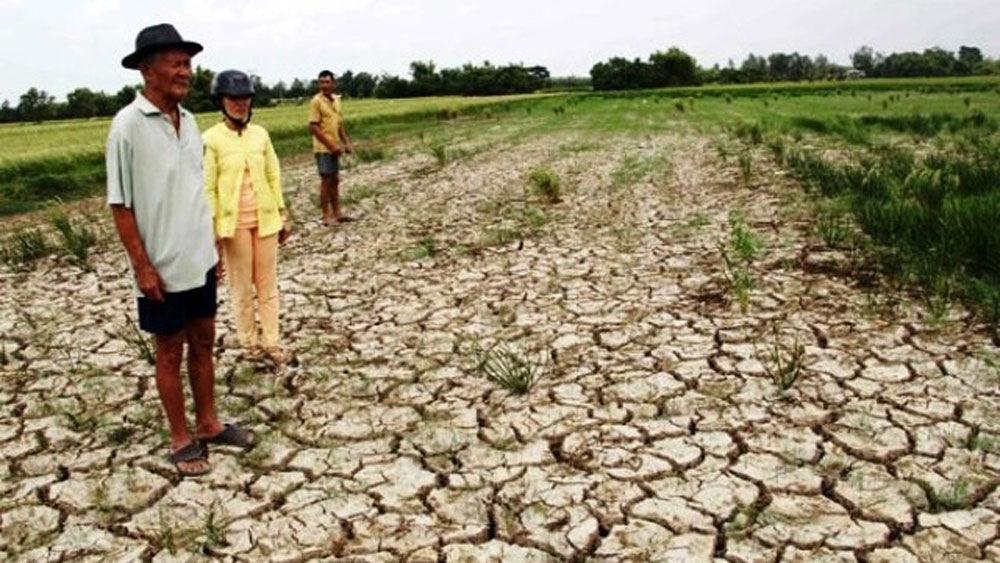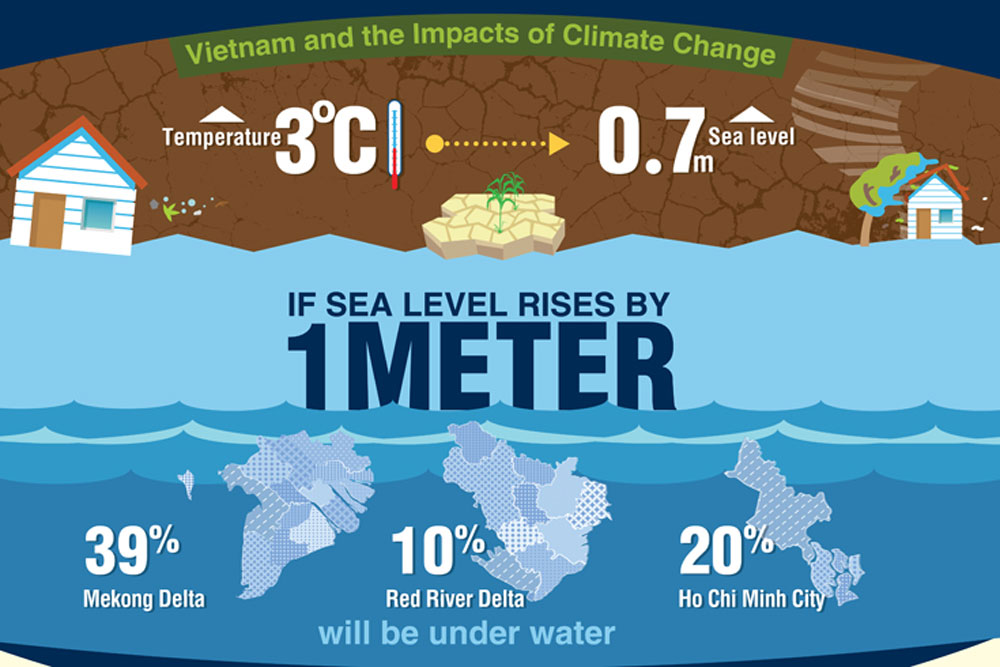Mobilising resources to cope with climate change
 |
|
Drought caused by climate change has become a serious problem for Vietnam in recent years. (Photo: VNA). |
The Mekong Delta is one of the three deltas most hit by climate change in the world due to rising sea levels. A climate change scenario shows that the temperature at the end of the century will increase by roughly 3.4 degrees Celsius, and if the sea level rises to 100 centimetres, approximately 40% of the land area of the delta will be flooded. Climate change also increases the risk of natural disasters and extreme weather events, such as heavy rains, storms, hurricanes, and tornadoes, which will affect the livelihoods of people in the region.
The exploitation of upstream water resources, especially the construction of hydropower dams, has also changed the flow of water, reduced the amount of sediment and fisheries resources, as well as causing deep salinization in the region and negative impacts on the local socio-economic development. Furthermore, riverbank, canal and coastline erosion is occurring in most of the Mekong Delta provinces. The latest statistics show that the whole region has 562 landslide areas with a total length of 786 km, of which 42 areas are in particular danger with a total length of 148 km.
According to Minister of Natural Resources and Environment, Tran Hong Ha, the recent extreme manifestations of climate change, such as storms, tropical pressure, floods, droughts
From 2011 to present, the Government has invested in works in adaption to climate change in the Mekong Delta provinces, the northern mountainous provinces, the Central Highlands and coastal provinces and cities, with a total budget of nearly VND19 trillion. The funds have been used to upgrade the salinity control system; upgrade sea
The MONRE has researched and proposed to the competent authorities for promulgation of a number of mechanisms, policies
 |
|
Vietnam and the impacts of climate change. |
However, the reality also shows that the legal documents on climate change are still lacking and are not synchronous. The contingent of cadres working in the management of climate change in the locality remains thin, while there is not a synchronous system of state management in the field of climate change from central to local levels.
At present, Vietnam is in the first phase of specialized training in response to climate change, so the human resources are in short supply. In particular, the budget for climate change is limited compared with the actual requirements, mainly for the development of mechanisms and policies and the implementation of some basic research and assessment of the impacts of climate change. Vietnam has not mobilized social capital for climate change response.
In the near future, the MONRE will strengthen state management on climate change on a national scale; coordinate with ministries, branches
Source: NDO
 Bắc Ninh
Bắc Ninh









Reader's comments (0)